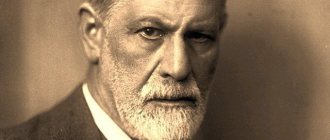Personal self-development is what makes us more successful, more beautiful, physically stronger, and mentally fitter. Thanks to self-development, we learn new skills, study, make a career, and achieve great success in life. Personal self-development helps you quit smoking, drinking, starting to play sports and building muscles. In English-language literature there is a division into conscious and unconscious self-development. We usually don't expect this. But thanks to the desire to develop, we become better. So what is self-development?
What is self-development
Self-development of a person is constant conscious work on oneself. Improving the mind, body, skills, character, behavior, culture, communication skills. The basics of self-development are self-education, self-education, self-organization.
The activity of self-development characterizes a person as an individual, as a transformer of himself, society, and nature. Without it it is impossible to achieve success. Personal self-development is an alternative to unconscious development carried out under the influence of external circumstances.
Titus Maccius Plautus very accurately defined the essence of human self-development many centuries before it became a trend for psychologists and coaches: “The wise man creates his own destiny.”
Psychology of self-development
For a long time, a person was perceived as an object of the external environment, but modern psychology looks at him as an active subject of self-development. As scientists say, his purpose is to be a self-actualizing person, that is, to have a dominant motivation for development and not strive for peace.
Recently, universities have made it mandatory for students to develop such competence as “readiness for self-development.” There is even a separate discipline that is taught mainly for psychologists and teachers - “Psychology of Self-Development”.
Psychology of self-development is a direction in science that studies the processes of self-change, active construction by a person of himself at all levels of his organization:
- physical,
- social,
- personal,
- spiritual.
The goal of self-development psychology is to understand how a person can intentionally change himself and manage his development.
Self-development books, films, and audiobooks are being released one after another. And how many different psychologists, coaches, personal growth trainers, and specialists in working with the subconscious have appeared who consider it their professional calling to help others improve themselves!
IT specialists say that the results in Internet search engines for the queries “self-development” and self-development have increased 10 times over the past decade.
Master time management
Time management, or time management, is not just the ability to carve out an extra 5 minutes for a cup of coffee, it is something more. After all, after reading various tips for improving your life, what often follows is a disappointed answer “there’s no time for this” and a refusal to take care of yourself.
But the art of time management will allow you to look at your daily routine like a clogged hard drive on your computer or a mess on your desktop. Once you remove the unnecessary things and rearrange things logically, you will begin to clearly see your goals, both in the short and long term, and how to achieve them, what to do for self-development and when. For example, take the same books: are you familiar with the situation when you have no time to read except public transport, but there are too many things to do at home? The answer is audiobooks. Combine different things in one, free up useful time. It will actually be easier for you to breathe.
Why do you need self-development?
The possibilities for personal self-development are colossal. It is valuable for:
- Human
Self-improvement allows you to satisfy material and non-material needs. A person finds himself and becomes happy. - Society.
Society and civilization move forward thanks to self-actualized people.
People around you pay more attention to your ability for personal self-development than you think. For example, when deciding to hire you, the employer evaluates your willingness to improve yourself. If you are a motivated person, but at the same time have poor knowledge of the profession, your candidacy may be preferable to an experienced but apathetic specialist.
Self-development is the only way out if you are dissatisfied with your life, suffer failures, and are unsure of the future. A self-motivated and hardworking person can achieve almost anything.
Keep in mind that not all self-development is valuable. Let's look at examples:
- Self-development in asocial directions.
You can be born into a dysfunctional family, spend your childhood in poor neighborhoods that are a breeding ground for crime, set a goal to become a bandit and not only achieve it, but turn into a drug lord who has established global trafficking of illegal substances around the world using airplanes and submarines. Isn't this about self-development? Something else: intelligence, character, communication! But its ethical value is minus. - Self-development, in which the development of personality is asymmetrical (some become better, and some become worse).
The most obvious example is devoting your life to a career and achieving a high position in society, because of which humanity is lost. “Machines” for making money, dishonest politicians have been intensively engaged in self-development all their lives. How are they doing with kindness, decency, and caring for their neighbors? - Self-development involuntarily.
Sometimes a person is forced to engage in self-development not because his personality needs it, but because there is such a request from the outside. For example, if he is afraid of losing his job or is captive of a promise, responsibility to someone else.
What hinders self-development
Many people live for today, go with the flow, without thinking about changing themselves. They do not acquire new qualities, do not get rid of old habits and character traits.
Why is this happening? The most obvious reasons:
- Laziness.
When was the last time you read a book? Did you do gymnastics? Did you go to the museum? Did you choose the music or film yourself, and not the radio station or television? Laziness is a string of missed opportunities. - Stereotypical thinking.
In a world where the economy decides for you what you will eat, wear, love, hate, think, there is almost no room left for your own intellectual and spiritual efforts. - Lack of learning values in the personal hierarchy.
And what kind of self-development can we talk about if you “have completed your studies at school and university, have suffered, and can no longer be dragged into these networks”? Unfortunately, this is how some people perceive education, as a value imposed by parents and society. Perhaps in childhood and adolescence something did not work out, and the learning process became associated with failure, suppression of the individual, and injustice. Now everything can be different! Nobody demands anything from you. You can master web design or knitting blankets from thick yarn. Herself. Only what you want. - Fear of failure.
“If something didn’t work before, then a new attempt will also fail.”
This is a harmful misconception. So many great people started out as failures. Henry Ford.
The creator of Ford cars failed miserably in his first two projects related to the development of cars. - Marilyn Monroe.
The great and beautiful actress, whose childhood was spent in orphanages and foster families, spent several years hearing from film studios that she had neither beauty nor talent before she received a major role. - Walt Disney.
The creator of one of the largest media conglomerates was kicked out of his first job (as a cartoonist) for incompetence. - Elvis Presley.
At the beginning of his career, the King of Rock and Roll failed performances, listened to advice to return to work as a truck driver and accusations that he could not sing. - Joanne Rowling.
The writer was refused publication of her first book about Harry Potter 11 times!
It is more convenient for a person to think that he is good the way he is. After all, if something needs to be changed, it means that something is wrong with him now. But aren’t complexes and dissatisfaction hidden behind such a position? And what is it like for those around him to be with such a “person without flaws”?
Personal development and self-improvement through meditation practice
You can begin your own internal spiritual development by studying Vipassana, since this course represents the basis of the method of any meditation. It can also be used at more advanced levels of practice, it’s just that the practitioner will have slightly different goals when performing the techniques.
First, the ability to consciously concentrate attention on one thing—an object or image—is trained. Then, when the mind is calm and can easily hold any object or idea in focus for a long time, the main stage of the meditation process begins - turning off the flow of one’s own thoughts and emotions and penetrating into the object of meditation - merging with it.
The Vipassana course also discusses other techniques that facilitate the first acquaintance with meditation and immerse the practitioner in a completely different atmosphere than the one that surrounds him in ordinary reality. What makes this course remarkable is that at the retreat a person is offered to plunge into a new world, where nothing bothers him, the effect of external stimuli is reduced to zero, there is silence not only inside, but also outside. In this way, all conditions favorable for learning and mastering new practices have been created. In turn, they lead to the expansion of the horizons of the knower and fill his life with new content.
Constant self-improvement
The road to self-improvement is limitless, there is no time frame. Once having taken this path, the seeker will not return back; he will always strive to find something new; his desire for development cannot be stopped.
Are there any goals for self-improvement? There are too many of them to even begin to list, and the reader himself is perfectly aware of them, because for everyone they are individual, sometimes they are difficult to express in words, since many of them can be in the emotional-figurative sphere, but inside each of us knows them and feels.
What is the meaning of self-improvement?
Why are you trying to improve yourself, what do you want to achieve? “I like the process itself” - this may be a short answer to the question posed. A creative path is always hidden in self-improvement, because the essence of any creativity is the creation of something new, probably based on what is already known, but no one has canceled the use of the accumulated knowledge of centuries in order to create new unique works.
Rethinking the experience of the past, a new approach to it - all this is an expression of the creative beginning of every person.
Much depends on what we understand by creativity. It is not limited to masterpieces of literature, music and theater or the creation of new technologies and designs. Creativity is also present in everyday life. A new approach to doing any task is already a manifestation of creativity.
Thus, practicing yoga and performing asanas from hatha yoga allows the practitioner to connect to the creative energy flow expressed by a certain asana.
A creative approach to the practice of hatha yoga
Each pose is a physical exercise and at the same time, through its execution, you connect to a source of energy that stimulates creativity in the practitioner. The asana is static, unshakable, but the energy passing through you in the process of performing it is the key to everything.
Your body becomes a conductor of vital energies, which also affects consciousness. Many practitioners note that with the beginning of yoga practice, something elusive appeared in their lives, that element of novelty that makes every moment of life unique, when every detail is filled with meaning.
It was your view that changed, you began to notice what you had not paid attention to before. Looking inward, into the depths of your consciousness, through spiritual practices, has opened up a new world outside for you. First of all, your perception has changed.
Stages of self-development
Now let’s figure out what the self-development system consists of. Yes, yes, a system, not a chaotic set of actions! It includes increasing awareness, acquiring the ability to control oneself, and developing willpower. Before you begin personal growth, you must have a plan, a self-development program.
Psychologists identify the following stages of self-development:
- Self-knowledge.
The tasks of self-development at this stage are to find yourself, understand your priorities, values, and calling. - Awareness of shortcomings.
Everyone has them. If you think you don't have them, you're wrong. The shortcomings must be discovered. Correctable - correct, incorrigible - admit. And accept yourself as imperfect. A person who has not learned to maintain a certain level of self-acceptance seeks excuses for himself, finds faults in others and attracts the same “toxic” people. - Setting goals.
At this stage you should understand what you want. It's not as simple as it seems. Usually a person easily answers what he does not want - the bad life and difficulties in which he is stuck. But it’s easy to complain that you’re a victim of circumstances, but come up with a constructive alternative! How should everything be in your life? This is a very important stage. The main thing is not to lose it. - Developing ways to achieve goals.
It is important to go through as many options as possible in order to make a choice later. This stage is more difficult than the previous ones. May require turning to self-development books, films, audiobooks, courses, and possibly specialists. - Taking action.
The vector was specified at the previous stage. Now you need to move in the chosen direction without losing your way.
After achieving the goal, return to the first point, and everything will be new. The process of self-development is continuous and cyclical.
Why there is no desire for self-improvement
What prevents us from changing? First of all, these are fears, fear of change. Nobody wants to take on extra responsibility, face criticism, or suffer failure. Therefore, going beyond the limits of a comfortable existence requires serious efforts and actions. The longer a person stays in his cocoon, the harder it is for him to get out of there.
The second reason is motivation. It is she who motivates a person to action, makes him move towards his intended goal. The motivational essence of an individual itself reacts to external and internal stimuli and determines the source of motivation. And if an active person has enough of his own attitudes for constant development, then an inert and weak person definitely needs an example from the outside.
The third reason can be called lack of willpower. Inability to control one’s reactions to external temptations, inability to defend personal long-term interests for the sake of momentary weakness. What you should learn first of all is strengthening your spirit, which in essence will be the beginning of self-improvement.
Directions of self-development
Before you start mastering different methods of self-development, you need to know that psychologists identify four main vectors of this process:
- creating conditions for a comfortable own life,
- achieving success in interpersonal relationships,
- realization of creative potential,
- formation of a motivation system and self-improvement in various important areas.
There are several areas of life in which you should develop consciously. The following areas of development can be identified:
- physical self-development (improving the functioning of the body for health and beauty),
- spiritual self-development (improvement of the inner world and ethical values),
- personal self-development (self-knowledge and self-improvement of character, intelligence, creative abilities, cultural ideas, etc.),
- social self-development (development of relationships with people),
- professional self-development (career building),
- financial self-development (development of money handling skills),
- leisure self-development (entertainment, recreation, hobbies).
A person must improve in all these areas, so your personal self-development list should not ignore any of them.
Self-actualization
Self-actualization is the desire for maximum realization of opportunities, disclosure of personal potential. And you cannot achieve it against your own will, according to the instructions of others.
Self-actualization contributes to:
- harmonization of internal state;
- stabilization of intrapersonal conflicts;
- independence from the value judgments of others;
- freedom;
- personal responsibility without imposing rigid frameworks from the outside.
The ultimate goal of self-development is a kind of ideal, which is sometimes impossible to achieve, but the individual’s striving along this vector develops it in the right direction and improves its positive qualities.
Self-actualization is closely related to self-realization, social recognition, organization of life path, as well as the needs of:
- security;
- self-affirmation;
- self-expression;
- cognitive sphere;
- communication;
- aesthetics, culture, spirituality.
To activate the process of self-improvement, it is important to realize the need to change oneself.
Where to start self-development
Since you are reading this article, you are already on the path of self-development. Independent search for information, and not reckless consumption of everything that is beneficial for someone to impose on you, is one of the tools for conscious improvement.
The beginning of self-development can be different: taking care of your own body with the help of health-improving and rejuvenating gymnastics, reading books, watching films, English lessons, taking professional courses, providing volunteer help... The options are endless. But remember that before you take action, you need to understand yourself and set goals (see the chapter “Stages of Self-Development”). Motivation and self-development are inseparable processes. And there’s no need for these feverish actions: “I signed up for a Zumba class and now, along with a crowd of the same losers, I’m jumping with all my might, but there’s no point”! Do only what is useful to you in life, from which you expect specific positive changes.
If you can’t figure yourself out on your own, there are many self-development teachers who are just waiting for the opportunity to help you. But here you have to be careful! Everyone is now trying to teach others how to live correctly: from celebrities, businessmen and politicians to lively housewives without education who run their Instagram channel without getting out of their slippers.
Collect a thorough dossier on your coach before entrusting your destiny to him (for considerable sums, by the way). And, of course, this should be an accomplished person, whom you are not ashamed to be like. It’s like with an eyebrow artist: you only need to go to the one whose eyebrows you like; if he can’t make beautiful arches for himself, then you will have complete nonsense instead of mesmerizing curves. And here the principle is the same. Do you know those self-development coaches who create motivation to gain wealth and prosperity, while they themselves huddle in a rented room all alone? In general, be careful!/p>
How to develop critical thinking?
Critical thinking means the ability to independently analyze information and form your own opinion based on it. An individual is capable of thinking critically and is able to calmly argue his position; he respects the opinions of others even if they do not coincide with his.
This type of thinking allows you to analyze the situation more fully and make independent decisions. People with an open type of thinking are more difficult to manipulate and impose views and values on them. To develop critical thinking you need to:
- Metacognition. In other words, self-knowledge is the ability to look at yourself from the outside, analyze your actions and feelings.
- Deduction. It will help you make decisions, analyze actions and situations. Treat the problem like a math problem. Take indisputable facts as axioms, logically reasoning, refute or confirm arguments for or against. Consider the opposing point of view.
- Check sources of information. Having received information, strive to find confirmation of it in authoritative sources or through practical means. Don't take everything you read or hear for granted.
- Make lists or block diagrams of all possible scenarios. Visualization helps to quickly understand controversial issues and find a solution.
- Try to get rid of fear, it prevents you from looking at the situation objectively.
- Follow the rule that there are 5 universal steps to solve a problem - preparation, studying the problem, identifying solution options, choosing one of them, evaluating the results.
The ability to look at a situation objectively and form an objective opinion about it is an important stage on the path to self-improvement. Critical thinking is useful in solving business issues and social relationships.
Self-development for men
It is vital for men to achieve goals and prove their strength and worth. Recommendations for organizing and educating self-development for men:
- Start with physical development.
- How long do you sleep? You need to sleep at least 7 hours, and get up no later than eight in the morning.
- Set aside at least half an hour every day to develop your intelligence and learn new skills.
- Analyze what you are wasting your time on and eliminate it from your life. This way you will save invaluable time for self-development.
Self-development for women
The problem for women is that it is difficult for them to find time for self-development, since they support the home and family, raising children, and often also work. Therefore, advice for women and girls on organizing their self-development is as follows:
- Set a time and date when you will begin self-development.
- Eliminate everything unnecessary from your life, free up time by reducing the amount of time you watch TV and gadgets.
- Get up early because the morning is the most productive time for brain activity, and start the day with exercise. They not only have a beneficial effect on physical fitness, but also give impetus to internal changes.
- Dedicate up to 40-50 minutes a day to gymnastics to rejuvenate and heal the body. This is the best self-development for beginners.
Have you decided to engage in self-development? Start with MelAnnett's Basic Marathon!











